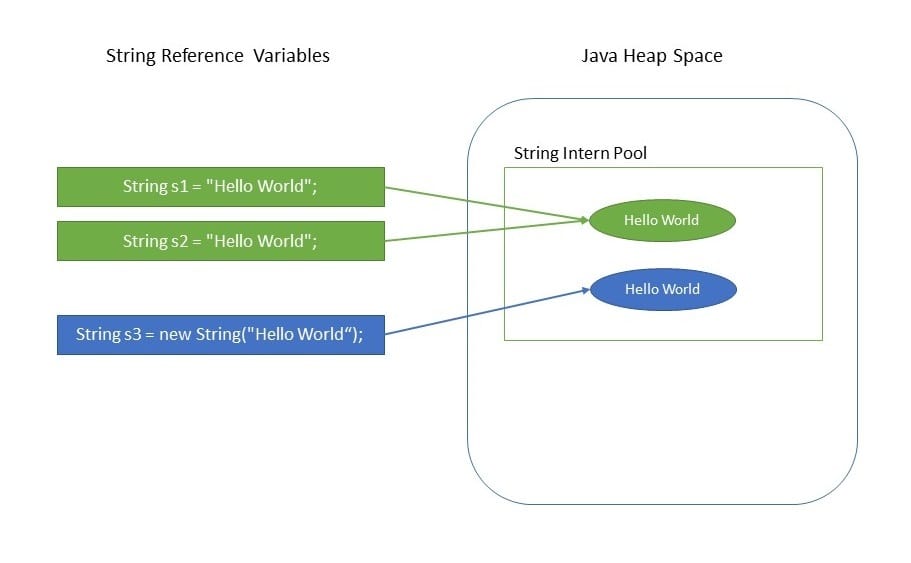Unalterable Strings: A Key Part in Ensuring Information Consistency and Dependability
In the realm of data monitoring, the value of unalterable strings can not be overemphasized. The principle of unalterable strings transcends mere technicality; it is a linchpin in the complicated internet of information governance.
The Principle of Unalterable Strings
Immutable strings, a fundamental concept in programming, refer to strings that can not be changed when they are produced. Essentially, once a string worth is designated, any type of operation that appears to modify the string in fact develops a brand-new string. This immutability ensures data uniformity and integrity in applications, as it avoids unexpected adjustments to the initial data.
Benefits in Information Uniformity

Data uniformity is crucial in numerous aspects of software program development, consisting of data source administration, multi-threaded settings, and dispersed systems (Why are strings immutable in Java?). Immutable strings contribute dramatically to accomplishing this consistency by stopping information corruption because of simultaneous accessibility. In scenarios where multiple procedures or threads engage with the exact same information all at once, unalterable strings work as a secure versus race problems and synchronization problems
Moreover, the immutability of strings streamlines debugging and testing procedures. With immutable strings, programmers can rely on that when a string is established, it will certainly continue to be the same, making it easier to trace the resource of errors and making certain that test situations create regular results. This dependability in data managing inevitably brings about more robust and stable applications.

Implementing Immutable Strings
Making sure the immutability of strings needs a thoughtful approach to their execution in software development. As soon as a string object is developed, one key approach is to design string courses in a way that stops alterations. By making strings immutable, developers can boost data consistency and integrity in their applications.
To carry out immutable strings efficiently, programmers ought to prefer creating brand-new string objects as opposed to modifying existing ones. This practice makes sure that when a string is assigned a worth, it can not be altered. In addition, any operation that appears to customize the string should create a brand-new string with the preferred changes instead of changing the original.
Moreover, utilizing unalterable strings can simplify concurrency monitoring in multi-threaded atmospheres. Given that immutable strings can not be changed after development, they can be safely shared among several strings without the risk of information corruption.
Role in Reliability Assurance
In software application growth, the use of unalterable visit this page strings plays a critical role in making sure the integrity of information procedures. Unalterable strings, when developed, can not be changed, ensuring that the data they stand for continues to be constant throughout the application's implementation. This immutability residential property gives a degree of assurance that the information being refined will not be unintentionally changed, bring about unanticipated end results or mistakes in the system.
By incorporating immutable strings right into software program style, designers can improve the dependability of their applications by reducing the threats connected with mutable data - Why are strings immutable in Java?. Immutable strings assist in stopping data corruption or unexpected modifications, which can be particularly crucial when dealing with delicate information or when information honesty is extremely important
Additionally, the use of unalterable strings streamlines concurrent handling, as several discover this info here threads can safely gain access to and share string data without the risk of one thread altering the content while another reads it. This aspect contributes significantly to the total reliability of the software program system, making certain foreseeable and consistent actions in information handling procedures.
Applications and System Integration
The smooth integration of unalterable strings into different applications and systems is pivotal for guaranteeing durable data uniformity and reliability throughout varied technical environments - Why are strings immutable in Java?. Immutable strings play an essential role in boosting the stability of data exchanges and interactions within facility software program communities. By integrating unalterable strings into applications, programmers can reduce the threats connected with data meddling, unapproved modifications, and unintentional alterations, consequently strengthening the general security position of the system
In the context of system integration, unalterable strings serve as a foundational component for developing protected interaction networks and facilitating smooth data transfers between various parts. Their immutable nature guarantees that information sent between systems remains proven and unchanged, minimizing the chance of variances or errors that might jeopardize the integrity of the whole system. Moreover, immutable strings can improve interoperability in between diverse systems by supplying a standardized style for information representation, enabling much more reliable data processing and exchange protocols throughout interconnected platforms. By adopting immutable strings in applications and system integration processes, organizations can fortify their data facilities and maintain the dependability and uniformity of their info properties.
Verdict
Finally, immutable strings play a vital duty in keeping information consistency and dependability in numerous applications and system assimilations. By making certain that strings can not be altered as soon as developed, the honesty of data is preserved, decreasing the risk of variances and mistakes. Carrying out immutable strings can dramatically boost the dependability of systems, eventually resulting in even more exact and reliable information handling.

Comments on “Why Are Strings Immutable in Java? Enhancing Code Dependability”